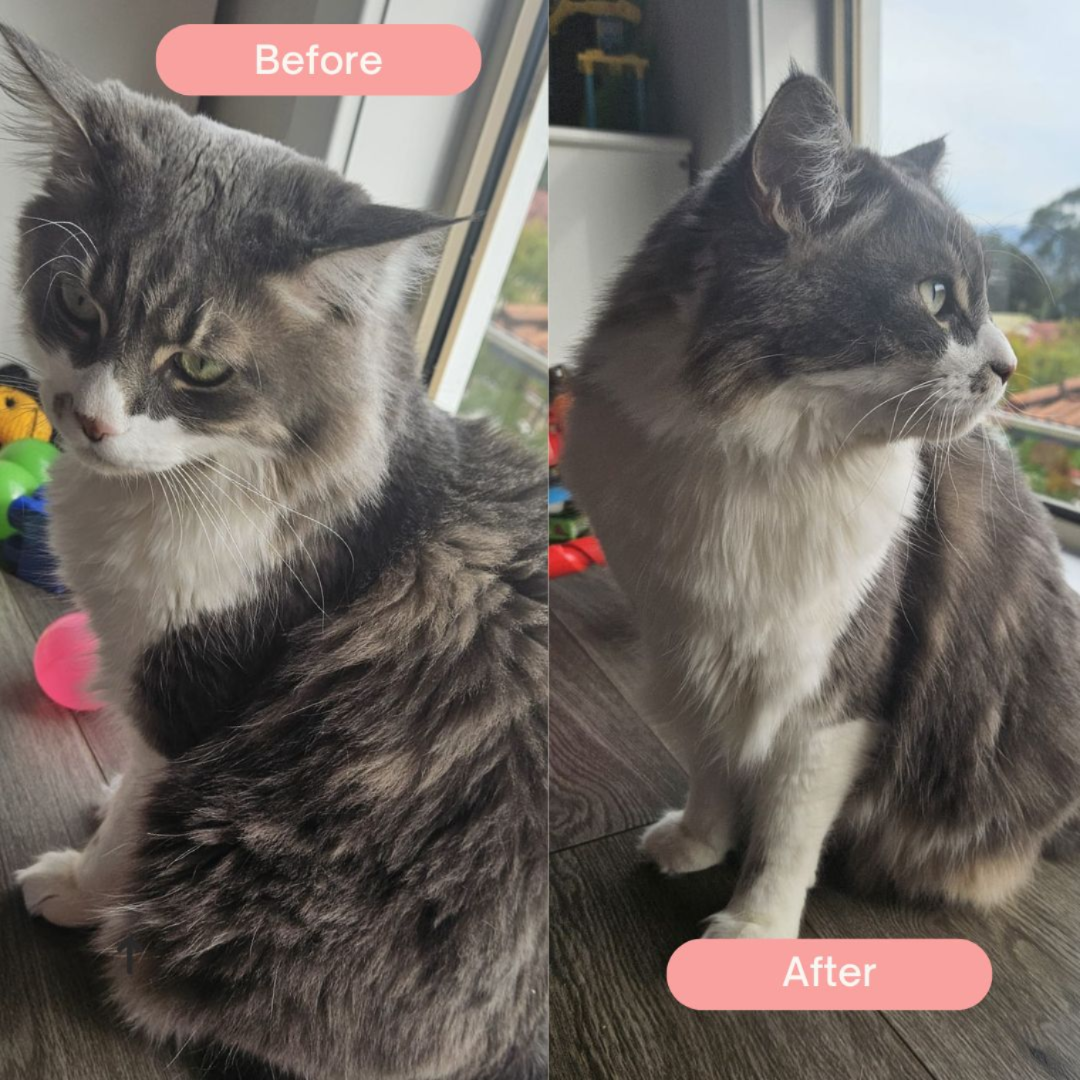
10 signs that may suggest you have a sick cat
Share
Cats are known for their independent and often mysterious nature, which can make it difficult to determine when they’re not feeling their best. However, being vigilant and recognizing the signs of illness early can make a significant difference in their health and well-being. Here are ten signs that your cat may be sick and in need of veterinary attention.
1. Changes in Appetite
A sudden increase or decrease in your cat’s appetite can be a red flag. If your cat is eating much more or less than usual, it could indicate an underlying health issue such as dental problems, gastrointestinal issues, or even more serious conditions like kidney disease or diabetes.
2. Weight Loss or Gain
Unexplained weight loss or gain can be a sign of various health problems. Weight loss might indicate issues such as hyperthyroidism, cancer, or chronic kidney disease. On the other hand, weight gain, particularly if it’s rapid, could be a sign of metabolic disorders.
3. Vomiting and Diarrhea
Occasional vomiting or diarrhea might not be cause for concern, but if it becomes frequent or persistent, it could indicate food allergies, infections, or gastrointestinal diseases. Blood in vomit or stools is particularly concerning and warrants immediate veterinary attention.
4. Lethargy
If your cat seems unusually tired, lethargic, or is sleeping more than usual, it could be a sign that something is wrong. Lethargy can be associated with a range of health issues, including infections, metabolic diseases, or heart conditions.
5. Changes in Grooming Habits
Cats are typically meticulous groomers. A decline in grooming can indicate that your cat is not feeling well. Conversely, excessive grooming, especially in one area, could indicate skin problems, allergies, or stress.
6. Respiratory Issues
Coughing, sneezing, wheezing, or difficulty breathing are all signs of potential respiratory issues. Conditions like asthma, infections, or heart disease could be the culprits and require prompt medical evaluation.
7. Behavioral Changes
Noticeable changes in behavior, such as increased aggression, hiding, or vocalizing more than usual, can be signs of discomfort or pain. Behavioral changes might be your cat’s way of indicating that something is wrong.
8. Changes in Urination
Increased or decreased urination, straining to urinate, or blood in the urine are serious signs that should not be ignored. These symptoms could indicate urinary tract infections, kidney disease, or bladder stones, which can be life-threatening if not treated promptly.
9. Bad Breath
While a cat’s breath may not always smell pleasant, particularly foul-smelling breath can be a sign of dental disease, infections, or metabolic issues like kidney disease. Regular dental check-ups can help prevent and detect these issues early.
10. Swelling or Lumps
Any unusual swelling or lumps on your cat’s body should be checked by a veterinarian. While not all lumps are cancerous, it’s important to have them evaluated to rule out serious conditions.
What to Do If You Notice These Signs
If you observe any of these signs in your cat, it’s essential to consult with your veterinarian as soon as possible. Early detection and treatment can make a significant difference in your cat’s health and recovery. Additionally, regular veterinary check-ups can help catch potential health issues before they become serious.
As a cat owner, being attuned to your pet’s normal behavior and routine is key to recognizing when something is amiss. By keeping a close eye on your cat and seeking veterinary care when necessary, you can help ensure your furry friend stays healthy and happy.
Taking care of your cat’s health is an ongoing responsibility, and being aware of these signs can help you provide the best care possible for your beloved pet. If you have any concerns about your cat’s health, don’t hesitate to contact your veterinarian for advice and assistance.





